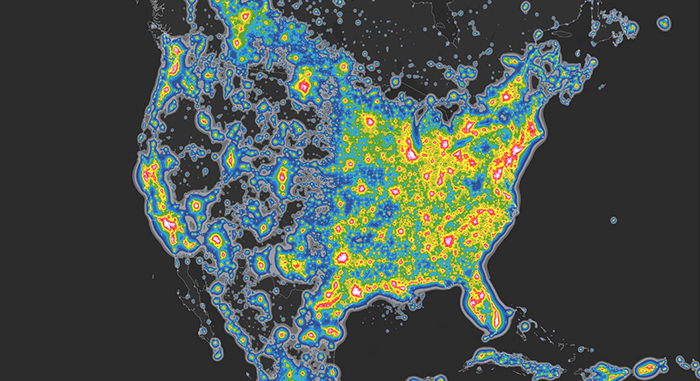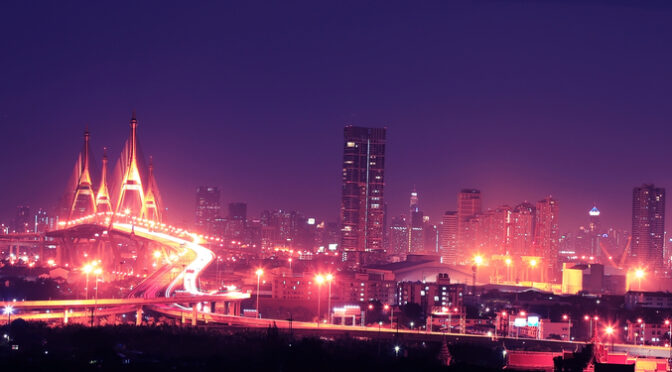By Raven Fon
I’m sure you already know about artificial light and how it blocks our natural view of the stars at night. However, there is a time-lapse video from Sriram Murali, a photographer, which reveals the difference on our skies like you’ve never seen before.
Titled Lost in Light, the video shows us exactly what we are missing out on. After watching the varying differences in light pollution levels, which starts counting down from level 8 in San Jose to level 1 in Eureka Dunes, you will want to run off to the nearest wilderness to do some serious stargazing.
What are light pollution levels? Well, they’re based on the Bortle scale, which measures how bright the sky is at night, and also, how well you can see the stars. The scale runs from #1, which is clear dark sky, to #9, which is inner-city sky.
“Finding locations to shoot at every level of light pollution was a challenge and getting to the darkest skies with no light pollution was a journey in itself,” says Murali.
At the beginning of this year, an international study made an estimation that 60% of Europeans and 80% of North Americans currently reside in areas where the Milky Way isn’t visible at night.

Light pollution in the US, 2016. Credit: World Atlas of Artificial Night Sky Brightness
If you don’t realize why that’s a problem, let me tell you. It’s because the stars are more important than simply being there to show us something pretty. There is empirical evidence which shows the steady and constant amounts of artificial, ambient light on this planet is screwing with our natural circadian rhythms.
This doesn’t solely affect the larger cities. As the latest maps illustrate, light pollution also spreads into lesser populated rural areas.
Scientists in the United Kingdom have previously noticed that trees and plants are also confused by this artificial light. This leads flora to move into their spring transition too early. Flowers that bloom ahead of time could have potentially damaging effects on the natural food-chain. So this isn’t merely a matter of some extra leaves, or a little more light. This issue is global.
Murali believes, as do I, that dark skies should be preserved. “The night skies remind us of our place in the Universe,” he explains. “That reminder [is] we are a tiny part of this cosmos … a special connection with this remarkable world would make us much better beings – more thoughtful, inquisitive, empathetic, kind, and caring.”
There is good news though! Organisations across the world, such as the International Dark-Sky Association, are combining their efforts to fight the effects of light pollution, as well as helping to prevent it from reaching even further.
We can help make a difference too. By remembering to turn off our lights, not only are we helping to reduce light pollution, we are also saving electricity.
(h/t Science Alert)

